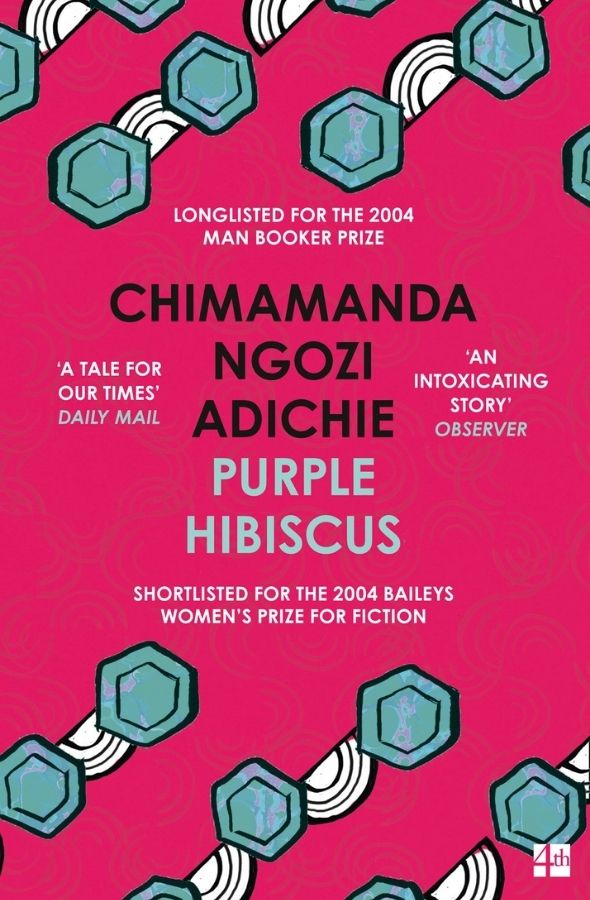Adichie is an author I have a great admiration for, yet I always take an incredible amount of time to get through each of her works. Her talent and slow narratives daunt and bore me at first, but I always come away wishing I had really engaged with the novel and digested it more consistently. Her debut, Purple Hibiscus, is no different.
Set in Nigeria and told from the perspective of fifteen-year-old Kambili, it explores the disarray of her incredibly religious and wealthy family. Through this exploration of the family, Adichie often zooms out and showcases the many issues plaguing the African country, namely corruption and poverty.
The sense of isolation and abuse is a major theme of the novel. Kambili’s family is one many would dream to be a part of, and enjoy the leisure of, yet don’t see the issues, violence, and constant fear lurking within it. Kambili allows this fear to consume her, pushing herself to always be the best in school and to always adhere to her father’s wishes, whereas her brother grows more and more resilient to the demands made of him.
Purple Hibiscus is a beautifully deep novel that showcases its world through a contrastingly shallow and small peephole. Most scenes within the story take place at Kambili’s home in Enugu, or her Aunty Ifeoma’s cramped and dirty flat in Nsukka. Adichie zooms right in and, both ironically and purposely, makes the narrator’s large Enugu home feel claustrophobic, and the confined Nsukka flat liberating for the controlled siblings when they are there.
Religion, poverty, corruption, family, and desire are all core themes of the story. Kambili’s family, and her aunt’s family, represent the two sides of the spectrum, and display how religion can divide loved ones, instead of bringing them closer. Kambili’s father is so dedicated to his Christian faith, that he effectively disowns his elderly father for refusing to convert, similarly to how he beats and torments his own children over any miniscule sign of ‘sin.’
What is most admirable about the novel is how it humanises each character, regardless of how good or bad they appear. Each have distinct personalities, even if they only play a minor role in the story. As you would expect, major characters all have their own backstories, motives, and dreams. What makes them so brilliant is their greyness; their likes and dislikes aren’t black and white, and their arguments and conflicts are always based in some form of tangible logic, even if disagreeable. It captures the essence of dysfunctional, where nothing is right or wrong.
Adichie is an expert at allowing each character to be shaped by their experiences. Kambili and her brother change drastically the longer they remain away from their large home and watchful father. This time away results in Kambili realising that there more to worrying about in life than God and her father. Instead, she begins to recognise how these two dictating figures stand in the way of her experiences with love, the ability to bond with her family, and her hopes for her future.
I could go on and on, but this novel is truly too complex for a relatively short review like this. You can examine most characters and write several pages of in-depth analysis on how and why they are how they are, and that is not something every novelist can pull off.
Purple Hibiscus is a commentary on religion, government, and family. However, it refuses to spell anything out. The poverty isn’t just showcased through characters spouting about how poor they are (which does happen), it is felt in the dirtiness of their living conditions, the simplicity of the meals, the lack of petrol and luxuries, or even water to flush the toilet with. Whatever Adichie hints at within the novel, it is often displayed through physical and environmental details. There is always some element of showing on top of telling.
Would I recommend this novel? Absolutely. It can be a little hard for those not familiar with some African/Nigerian culture, as well as the Igbo language, but I still think it can be an enthralling and emotionally complex read in spite of these cultural hurdles. Definitely pick it up if you like depressing and detailed fiction.

Leave a Reply